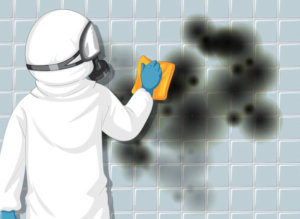Mold Testing is a significant concern for many homeowners. One of the most common IAQ issues is mold growth, which can occur in any home but is particularly prevalent in humid or damp environments.
Initial Assessment:
The IAQA (Indoor Air Quality Association) recommends a thorough inspection of the property to identify any visible mold growth, moisture sources, and potential contributing factors such as water damage or high humidity levels.
Sampling:
Collect samples after Mold testing from affected areas to confirm the presence of mold and identify the type and concentration of spores present. Examples may be collected using various methods, such as air sampling, surface sampling, or bulk sampling.
Laboratory analysis:
The collected samples are then sent to a laboratory for analysis to determine the presence and types of mold present. The laboratory will also provide a report on the concentration of mold spores in the samples.
Evaluation and recommendations:
Based on the laboratory results, IAQA recommends evaluating the severity of the mold problem and developing a remediation plan. This may include recommendations for cleaning or removing affected materials, correcting moisture issues, and improving ventilation.
Remediation:
IAQA recommends following proper mold remediation protocols, including personal protective equipment, containment measures, and appropriate cleaning and removal techniques.
Post-remediation testing:
Conducting additional testing to ensure that the problem has been adequately addressed and that the indoor air quality has returned to acceptable levels.
It’s important to note that mold testing is only one step in addressing mold issues. If mold is found, professional remediation should be performed by a certified mold remediation contractor. By following this IAQA-approved guide, homeowners can take a vital step toward identifying and addressing mold issues in their homes, thus ensuring the health and well-being of their families.



